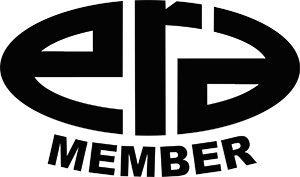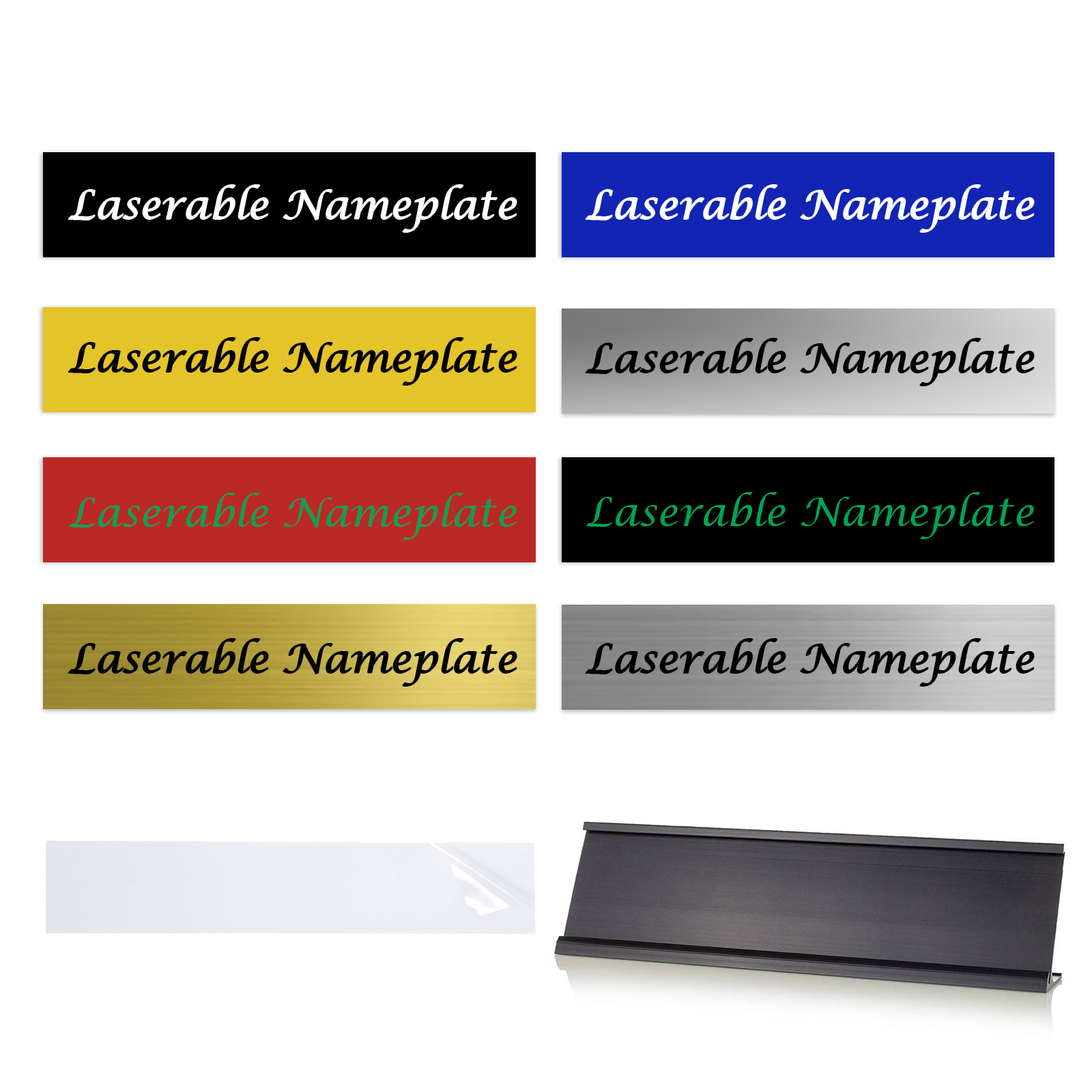How Plastic Nameplates Improve Operational Efficiency Across Industries
How Plastic Nameplates Are Manufactured: A Comprehensive Guide to Their Production Refine
The production of plastic nameplates involves several exact steps, beginning with the selection of suitable materials to the last finishing touches. Each phase is critical, making sure the item fulfills particular needs for toughness and looks. Different manufacturing techniques play a substantial duty in crafting these nameplates. Recognizing these processes can clarify the intricacies behind what might appear like a straightforward item. What variables add to the top quality and personalization of these nameplates?
Comprehending Plastic Materials Utilized for Nameplates

The Layout Process: From Concept to Prototype
The layout procedure for plastic nameplates starts with a clear concept that overviews the total creation. Designers team up with clients to specify the function, style, and particular requirements of the nameplate. This preliminary phase consists of brainstorming sessions, laying out ideas, and selecting shades and typefaces that line up with branding goals.Once the principle is established, designers utilize computer-aided design (CAD) software application to create detailed electronic representations. These prototypes permit visualization and changes before progressing. Feedback from stakeholders is integral throughout this phase, as it assists improve the style to meet expectations.After completing the digital model, a physical model might be created, commonly with strategies like 3D printing. This substantial representation enables more examination of aesthetics and functionality. In general, the style process is a necessary action that lays the structure for the effective production of top quality plastic nameplates.
Cutting and Forming the Plastic
In the cutting and shaping stage of plastic nameplate manufacturing, the selection of materials plays an essential function in determining the last product's quality and toughness (Plastic Nameplates). Various precision cutting strategies, such as laser cutting and CNC machining, assurance that the plastic is formed with accuracy and consistency. This combination of careful material choice and progressed cutting methods is essential for producing top quality nameplates

Product Selection Refine
Picking the appropriate material is important for producing top notch plastic nameplates. Various kinds of plastics are available, each offering distinct advantages and characteristics. Common selections include acrylic, polycarbonate, and PVC. Polymer is preferred for its clearness and UV resistance, making it suitable for outdoor applications. Polycarbonate, recognized for its resilience and effect resistance, appropriates for settings that require boosted defense. PVC is often picked for its cost-effectiveness and adaptability in layout. The selection procedure also takes into consideration elements such as surface, density, and color finish, which can considerably affect the last look and capability of the nameplate. Eventually, the picked material needs to straighten with the meant use and aesthetic goals of the plastic nameplate.
Precision Trimming Techniques
While choosing the appropriate product prepares, accuracy cutting methods play an important function fit the plastic nameplates into their last forms. Different methods, consisting of laser cutting, CNC milling, and die reducing, are utilized to accomplish precision and uniformity. Laser cutting utilizes focused light to create clean edges and elaborate designs, suitable for complicated patterns. CNC milling supplies versatility by removing excess product with accuracy, fitting various thicknesses and shapes. Pass away cutting, on the various other hand, allows for automation of uniform items, enhancing effectiveness. Each technique is chosen based on the layout specifications and the wanted coating, making sure that the end product meets top quality requirements and customer assumptions while keeping toughness and visual appeal.
Printing Strategies for Modification
How can makers attain dynamic and exact styles on plastic nameplates? The solution hinges on numerous printing strategies customized for personalization. Digital printing has actually gotten appeal as a result of its capacity to generate high-resolution images and detailed styles directly onto plastic surfaces. This method enables quick turnaround times and minimal setup expenses, making it excellent for short runs and personalized orders.Screen printing stays an additional extensively utilized strategy, especially for bigger quantities. It involves developing a stencil and using layers of ink, causing rich colors and durability. UV printing, which uses ultraviolet light to cure the ink, is also efficient, supplying superb bond and resistance to fading.Additionally, pad printing uses convenience for irregularly designed nameplates, permitting for detailed designs on difficult surfaces. These printing approaches enable manufacturers to satisfy varied client needs while making sure high quality and longevity in their plastic nameplate items.
Surface Area Treatments and Finishing Options

Top Quality Control Measures in Manufacturing
Ensuring the highest requirements of quality assurance throughout the manufacturing of plastic nameplates is necessary for keeping item stability and consumer complete satisfaction. Makers implement strenuous evaluation procedures at numerous stages of the production procedure. Raw products undergo complete testing to validate they satisfy requirements for resilience and color uniformity. Throughout the molding stage, automated systems check specifications such as temperature level and pressure to protect against defects.In addition, aesthetic inspections are performed to determine any surface area flaws or imbalances. As soon as the nameplates are generated, they are subjected to practical tests, including adhesion tests for printed elements and cardiovascular test for toughness. Quality assurance groups often use statistical tasting methods to assess sets, seeing to it that any kind of deviations from criteria are quickly attended to. This comprehensive strategy not just enhances product high quality yet also fosters count on with clients, affirming the maker's commitment to quality in every nameplate produced.
Packaging and Circulation of Finished Nameplates
The product packaging and distribution of completed plastic nameplates are critical actions in ensuring they reach customers in excellent problem. Different product packaging materials are selected to shield the nameplates throughout transit, while shipping approaches are carefully picked based upon efficiency and cost-effectiveness. Additionally, effective storage remedies are executed to preserve quality till the nameplates are supplied.
Packaging Materials Utilized
Selecting suitable product packaging products is crucial to ensure their security during transit when dispersing ended up plastic nameplates. Generally employed products consist of bubble wrap, foam cushioning, and cardboard boxes, all created to support the nameplates against shocks and effects. Bubble cover offers an adaptable obstacle, while foam extra padding assurances that nameplates stay firmly in location, reducing the threat of my link scratches or damage. Additionally, tough cardboard boxes are used to have the nameplates, providing structural assistance and security from exterior elements. Tags may be applied to suggest managing directions or vulnerable contents, even more improving safety and security during transportation. Overall, making use of top quality packaging materials substantially contributes to the honesty and presentation of the ended up plastic nameplates upon arrival at their destination.
Shipping Methods Utilized
Effective distribution of completed plastic nameplates counts on numerous delivery methods that guarantee protected and timely shipment. Business often use messenger solutions, products shipping, and post offices, depending on the size, weight, and location of the bundles. For regional distributions, messenger services provide rapid transportation, making certain nameplates get to customers swiftly. For bigger orders, products delivery is favored, using trucks or delivery containers to carry mass amounts successfully. Post offices work as an economical alternative for smaller deliveries, especially for residential distributions. All delivery techniques focus on protective product packaging to avoid damages throughout transit. Tracking systems are additionally made use of to keep track of shipments, giving clients with real-time updates and reassurance relating to the condition of their orders.
Storage Solutions Implemented

Often Asked Inquiries
What Sorts Of Companies Frequently Use Plastic Nameplates?
Plastic nameplates are commonly used by various services, including workplaces, institutions, medical facilities, and manufacturing facilities. These nameplates serve important functions such as identification, information display screen, and branding, adding to business performance and specialist appearance across varied atmospheres.
The length of time Does the Entire Production Process Take?
The production process duration varies based upon complexity and amount, generally varying from a couple of days to numerous weeks. Factors influencing this timeline consist of style approval, product schedule, and manufacturing methods used by the business.
Can Plastic Nameplates Be Recycled After Usage?
Plastic nameplates can be reused, given they are made from recyclable products. However, the accessibility of recycling programs and neighborhood laws might affect their recyclability. Proper disposal methods are necessary to guarantee efficient recycling.
What Are the Ecological Impacts of Plastic Nameplate Production?
The environmental influences of plastic nameplate production include carbon emissions, source deficiency, and contamination from making processes. Plastic Nameplates. Furthermore, incorrect disposal contributes to plastic waste, adversely affecting communities and wildlife, highlighting the need for lasting methods
Exist Any Kind Of Safety Interest In Plastic Nameplates?
Safety and security problems concerning plastic nameplates largely involve potential chemical exposure during manufacturing and the threat of materials deteriorating with time, which may cause dangerous materials being launched, More Bonuses impacting both human health and the atmosphere. While various materials can be utilized for nameplates, plastic stays a preferred selection due to its adaptability and resilience. In the cutting and forming stage of plastic nameplate manufacturing, the option of materials plays a vital role in figuring out the last product's high quality and longevity. Picking the ideal product is vital for producing top notch plastic nameplates. While selecting the appropriate material lays the groundwork, precision reducing methods play a crucial role in shaping the plastic nameplates into their final forms. When distributing ended up plastic nameplates, selecting appropriate product packaging products is necessary to ensure their security during transportation.